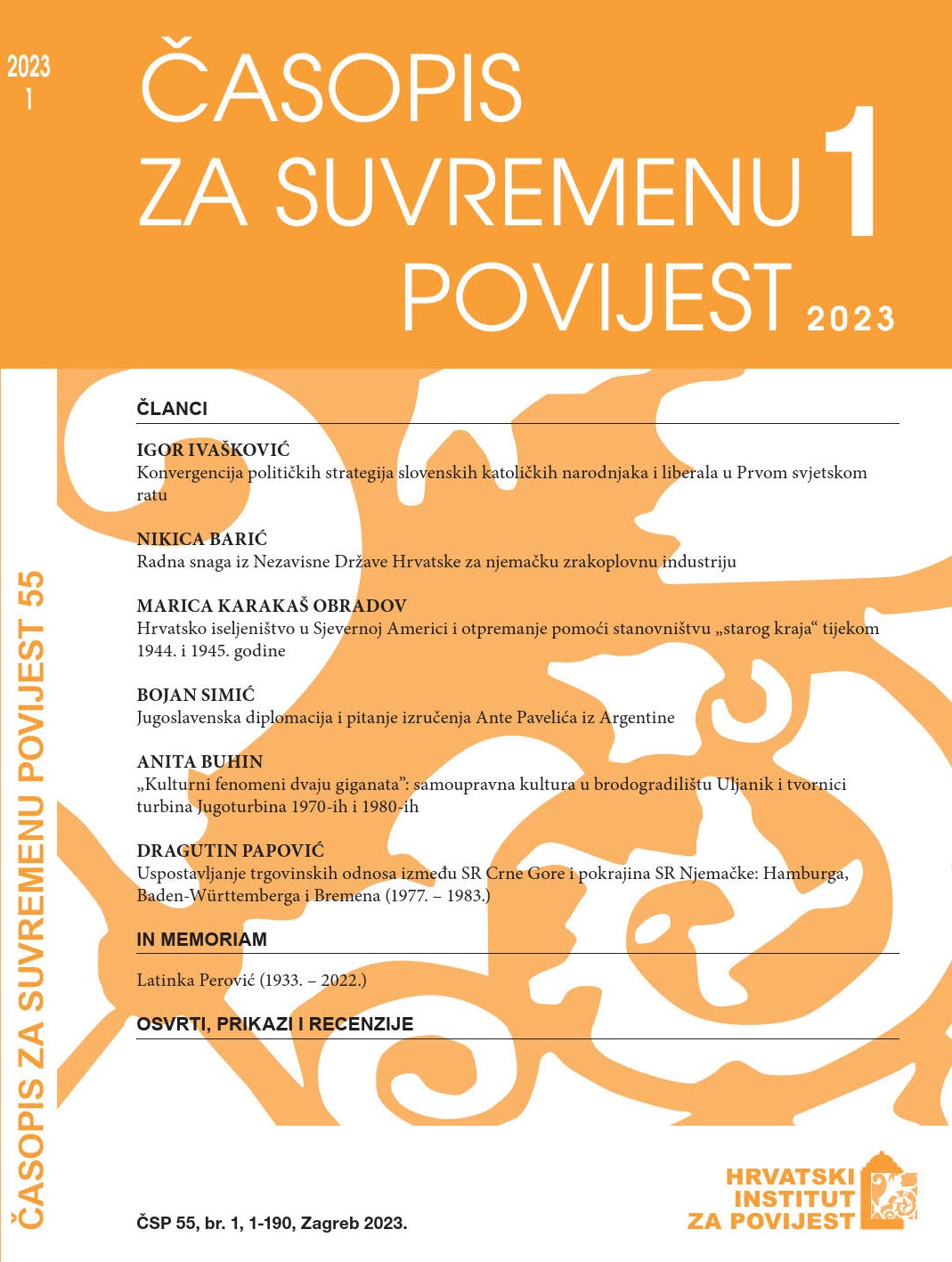Hrvatsko iseljeništvo u Sjevernoj Americi i otpremanje pomoći stanovništvu „staroga kraja” tijekom 1944. i 1945. godine
Croatian Emigration in North America and Aid Shipments to the Population of the „Old Country” during 1944 and 1945
Author(s): Marica Karakas ObradovSubject(s): History, Military history, Social history, Health and medicine and law, WW II and following years (1940 - 1949), Migration Studies
Published by: Hrvatski institut za povijest
Keywords: emigration; North America; World War II; aid shipments; famine; disease;
Summary/Abstract: Croatian émigrés in North America were primarily involved in the activities of collecting aid for the „old country” through the Croatian Fraternal Union (CFU founded in 1894), the National Council of Americans of Croatian Descent, better known as the Council of American Croats (founded in February 1943), and then through the United Committee of Americans of South-Slavic Descent (founded in August 1943), i.e. its War Relief Fund of Americans of South-Slavic Descent (WRFASSD). In that auxiliary fund, somewhat later called the American Committee for Yugoslav Relief (ACYR), one of the leading roles was played by Zlatko Baloković, a world-famous violinist with an American address and Croatian origins. The ACYR operated until January 1949, and its honorary president until February 1948 was Anna Eleanor Roosevelt. The humanitarian activity began with the cooperation of the American Red Cross and aid shipments to prisoners of war in Germany in 1941, and became more intense and significant for the civilian population in 1944 due to the aid provided to the refuges in southern Italy and in El Shatt in Egypt, and after that, the three shipments of clothes, footwear, medicines and food for the People’s Liberation Army and the population of the „old country” in 1945. Packages and remittances sent by emigrants to families and relatives began to arrive in 1945, and the CFU also requested information on persons in Croatia who had inherited, mostly from deceased family members, the money invested in their insurance fund. The total value of the three shipments sent to Yugoslavia was 1,087,272.84 dollars; in today's equivalent, that amount would be about fifteen times higher; the goods weighed 1,506,316 pounds (about 688 tons). By the decision of the presidency of the Anti-Fascist Council of the People's Liberation of Yugoslavia in October 1945, the WRFASSD, i.e. ACYR, was decorated for its dedicated work during and immediately after the war. The large shipments and individual parcels from emigrants certainly alleviated the consequences of war, poverty, famine and disease, as well as psychological fatigue and the feeling of abandonment; but they can also be interpreted as political support for the new Yugoslav authorities, which in that period, depending on the military and political circumstances, promised to build a democratic government, i.e. a „people's democracy”. This concept was fully understood and supported by some in the émigré community, but many understood it only superficially and with the hope that the new government would also mean the prosperity that everyone eagerly awaited after the difficult years of war.
Journal: Časopis za suvremenu povijest
- Issue Year: 55/2023
- Issue No: 1
- Page Range: 51-73
- Page Count: 23
- Language: English, Croatian

